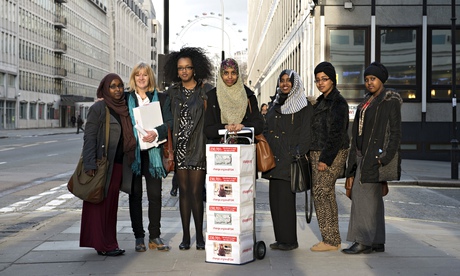
Why is today's report significant? Because it marks an important shift in how FGM is being talked about. In a very public way the home affairs select committee has said that girls who have gone through FGM have been failed, and I needed to hear that.
As a survivor of FGM – I feel it has validated my pain.
And as a campaigner I feel like I, and others like me, have been listened to. After 11 years of crying and being threatened because of speaking out I feel like it was worth it. Now it's down on paper, it is on the record that the British government failed these girls – and that means that now, hopefully, we can see real action.
As far as the substance of the report goes I agree with every point that has been made, although I would have liked to have seen more detail about how specialist services for survivors could be supported. I run a counselling service for women who have been cut and it is the only one in Europe, a few more would make a huge difference.
When you help survivors you are not only giving them vital support, you are also doing a great deal of preventive work. I really welcome the call for shelters for women at risk, or who have gone through FGM – these women have really complex needs. If you offer survivors a safe place they may feel they can support a prosecution – these women are looking for a safe space where they can report FGM violence, which they can't do in their own homes.
I am a big supporter of noting the risk of FGM in the Red Book [a child's personal health record] and mentioned this to the committee, so I am pleased to see it included in the report. If a mother suffers from mental health issues, that is noted in a child's Red Book, so why not FGM? If this information is passed from a midwife to a doctor, then to nursery and school, then parents would know that that child is being watched and being looked after.
Like the report states – we need better reporting. When I went to my GP it wasn't recorded that I had been through FGM, I had to ask for it to be noted. I was brought up thinking that there was nothing wrong with FGM, it was only when an educated health professional talked to me about it that I realised what had happened. But I really think that if you don't make FGM compulsory in safeguarding training then nothing is going to change, and we will still be having this conversation in 10 years time.
It is about time this issue became mainstream, and the publication of this report is part of that. In this country we find it very difficult to talk about anything related to race, gender or religion – but that has to change.
Leyla Hussein is a psychotherapist and co-founder of Daughters of Eve

